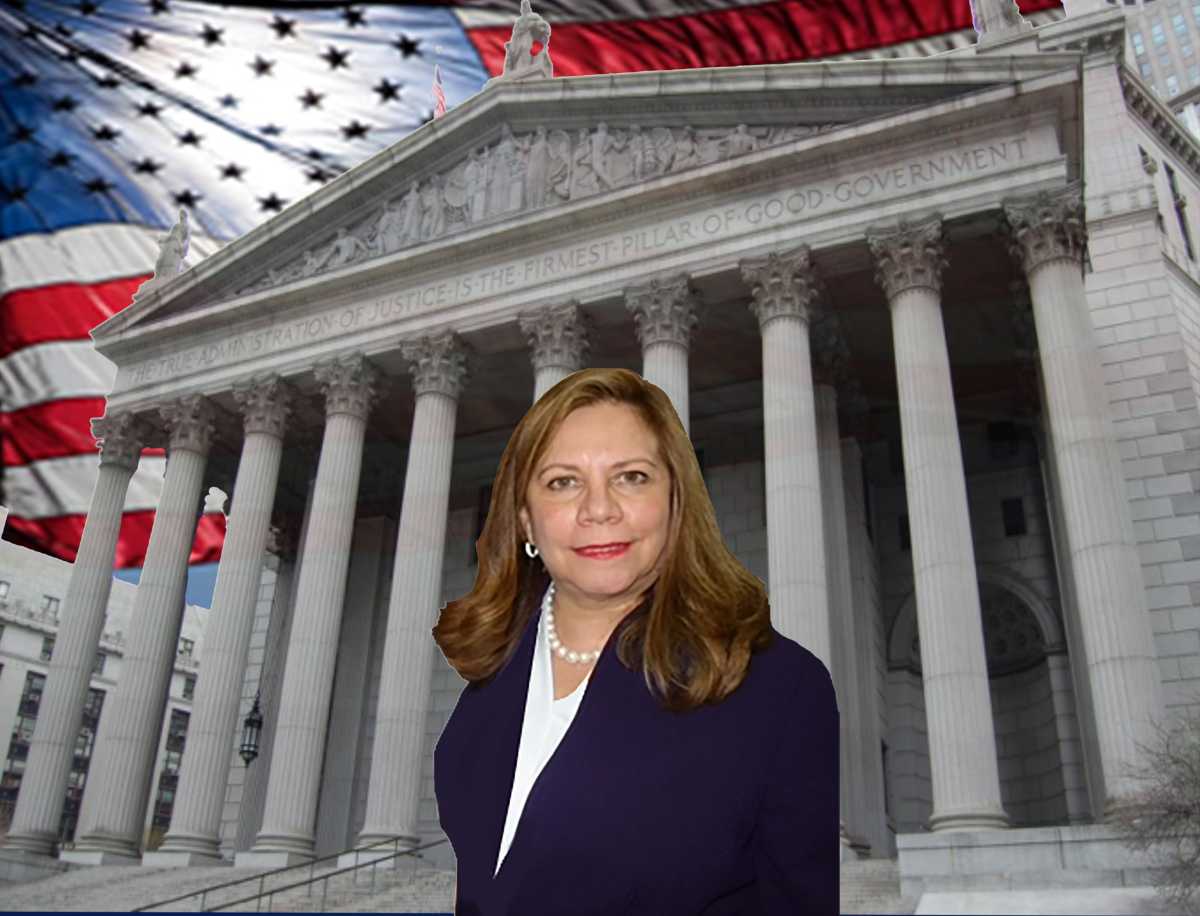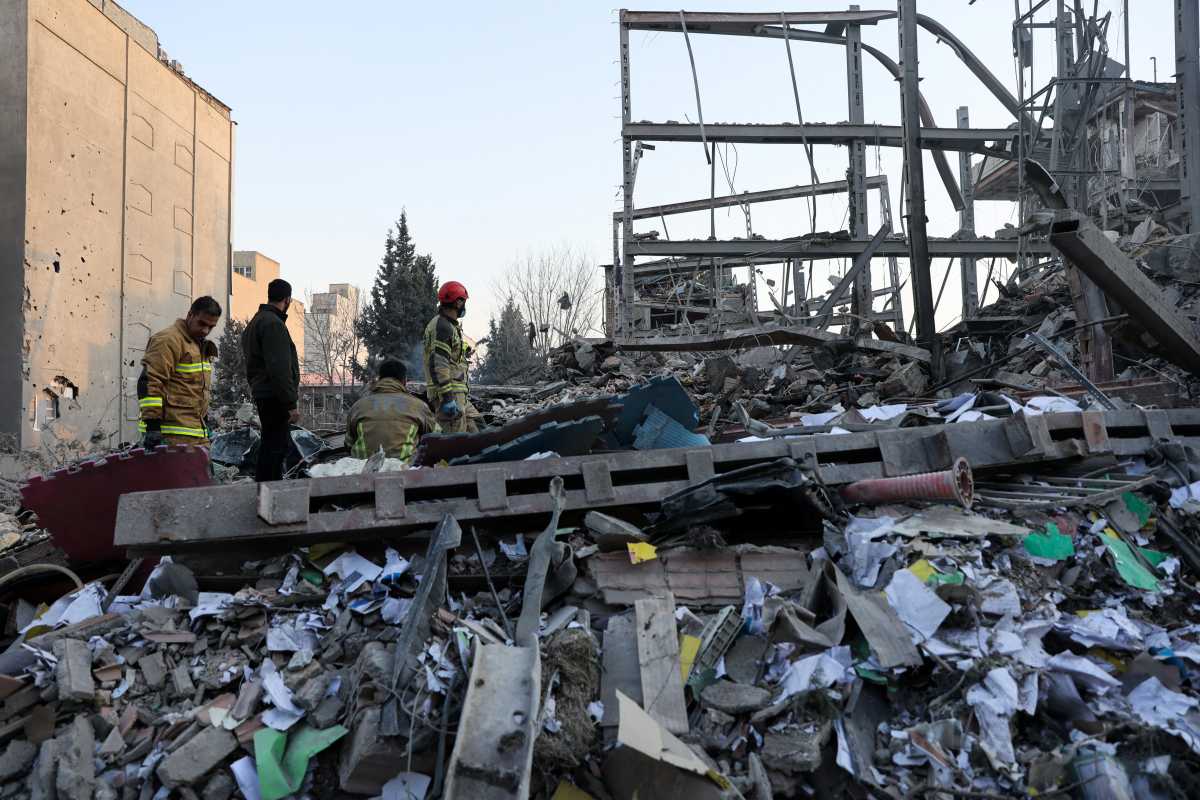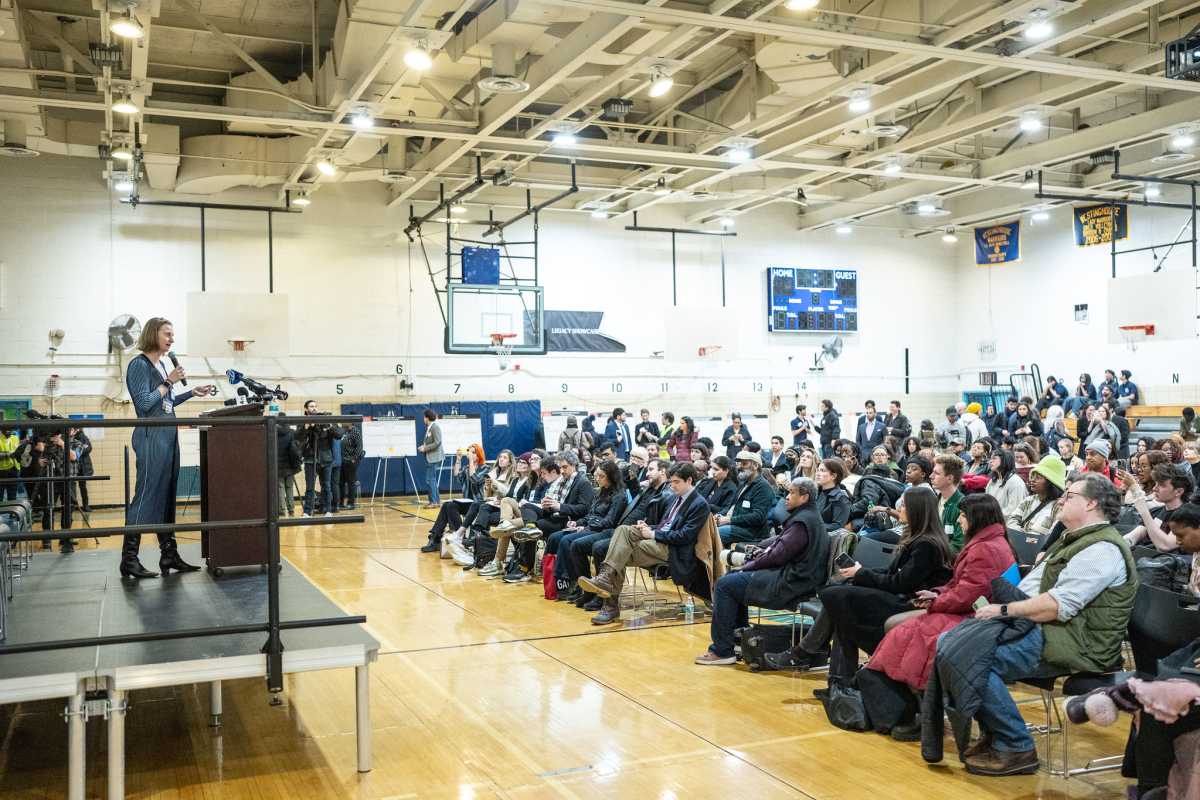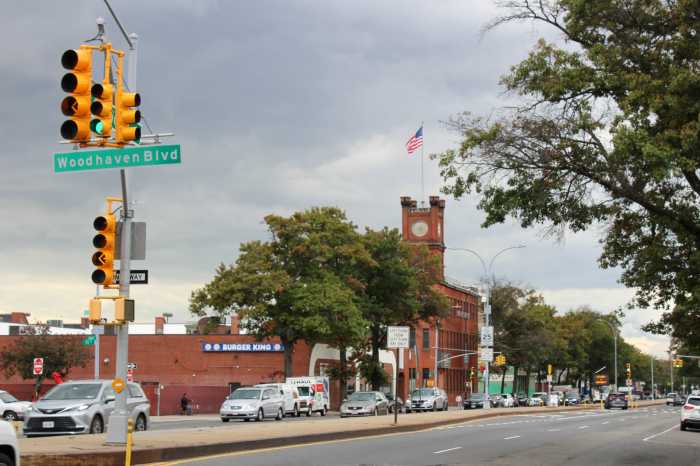Lifelong Brooklynite Carmen Pacheco is running for Civil Court Judge Municipal Court District 7, which consists of Bushwick, Cypress Hills, East New York, and Starrett City neighborhoods in Brooklyn.
Pacheco’s campaign for judgeship has scored numerous endorsements so far, including Assemblyman Erik Dilan, Brooklyn Hispanic Chamber of Commerce, Assemblywoman Maritza Davila, FDNY Hispanic Society, Councilwoman Darma Diaz, District Leader Ari Kagan, and UFCW Local 88. She said she hasn’t been through the screening panel process though.
Pacheco and her business partner, Betty Lugo, founded Pacheco & Lugo, PLLC, the first Hispanic woman-owned law firm in New York, at One World Trade Center in 1992.
“I was the first Latina at a 150-year-old law firm, no women partners at the time,” said Pacheco. “Which tells you a little bit about the culture of the firm. And then I started my practice. That was really just the dream of two college kids at my parent’s kitchen table.”
Pacheco recalls vividly being in the building on the 29th floor during the first chaotic terrorist attack on the World Trade Center in 1993. “It tells you in life what you have to take seriously,” said Pacheco, who had volunteered to be the fire warden for her floor shortly before.
She said that the office was supposed to be moved from the 29th floor to the 88th floor when the second terrorist attack took out both towers on September 11th, 2001, but they had relocated to another office on Wall Street instead.
After that, Pacheco said, her practice moved back to her native borough with an emphasis on serving the community at large and representing the city’s vulnerable immigrant and worker-class population.
One of the biggest cases was against Cypress Hills cemetery who was burying Black and Latino remains in landfill essentially in 1995, said Pacheco. Visiting families were coming in contact with toxic materials and the cemetery and attorney general at the time were charging extra fees to have them reburied elsewhere, said Pacheco. “You’re talking about people who didn’t have the economic means, they did the best they could to inter their loved ones. And I said no,” said Pacheco.
“It makes sense to take your legal activism, take your legal license, and to help those who need representation. And to balance those scales when they’re up against larger companies or can’t really afford adequate legal services,” said Pacheco.
Pacheco’s mother is a retired public school teacher (UFT) who emigrated from Puerto Rico. Her father immigrated from Peru to become an airline worker. Her family lived in NYCHA’s Gowanus Houses development until she was 12.
“I didn’t like bullies,” said Pacheco about her youth. “I was very popular. I have to say, very chatty, very nice to everybody. I didn’t care if you were popular or not, cause my parents raised me a certain way.”
Pacheco said she believes that a judge needs to be impartial and a good listener to maintain the integrity of the system. She said in her own legalities with housing, she’s interacted with fantastic judges that she aspires to be like.










